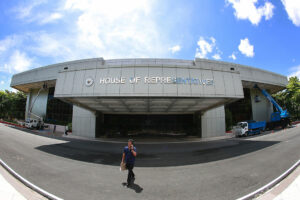THE GOVERNMENT should comprehensively reform the congressional party-list system by banning political dynasties from participating, a political economy and business consultancy group said.
In a position paper, the Political Economic Elemental Researchers and Strategists (PEERS) also said the government should strictly monitor campaign financing, and level the playing field for marginalized groups amid the hijacking of political elites.
“To prevent political parties, wealthy individuals, and oligarchs from using the party-list system as a backdoor to Congress, a stricter and more explicit legal definition of ‘marginalized and underrepresented sectors’ should be established,” according to the group.
The position paper comes just as the Commission on Elections ended the filing period for certificates of candidacy, which saw 184 Senatorial aspirants and 190 party-list groups seeking congressional seats.
Apart from banning political dynasties, PEERS said the government should put a cap on financial contributions to party-list groups, with a stricter reporting requirement on campaign spending to prevent political elites from bankrolling them.
“Party-list groups should disclose their donors. A watchdog agency should audit these disclosures to ensure the funds are not from wealthy individuals or corporations that do not align with the marginalized sectors,” it said.
Moreover, changes to the party-list system should include the implementation of seat quotas for sectoral groups, ensuring balanced representation in Congress and revisiting the 2% national voting threshold for political parties, PEERS noted.
A party-list group must get at least 2% of the total national vote to secure a seat at the House of Representatives.
The current voting threshold could “favor more established or wealthier groups,” PEERS said, urging the government to lower the vote requirement or implement a proportional voting system, where received votes directly correspond to the number of seats a party-list can win.
“The number of groups participating in the party-list system has grown, but there has also been a shift toward more politically connected or mainstream parties securing these seats,” a part of PEERS’ position paper stated.
“While some genuinely marginalized groups continue to gain representation, others argue that the system has been diluted, with powerful families and political dynasties fielding candidates through this mechanism.”
The Philippine party-list system was created by the 1987 Constitution, with its framers seeing the system as allowing underrepresented sectors to participate in the lawmaking process. It has since been expanded in 2013 after the Supreme Court ruled that political parties could also participate in the party-list system.
“This broadened the system’s scope, prompting criticisms that traditional political elites and powerful interest groups were co-opting the party-list slots, weakening the system’s original intent,” PEERS said, referring to the tribunal ruling a decade ago.
The government should consider reducing the maximum seats for groups to provide more “diverse representation” in the chamber. Party-lists are currently limited to three seats in the chamber.
A certain percentage of congressional seats must be allocated to specific sectors, including labor, fisherfolk, indigenous peoples, among others, for more inclusive representation, it added.
At present, about 80% of the more than 300 congressmen are district representatives, while the rest of the seats are allotted to party-lists.
Further, PEERS said the Commission should be strengthened so it could screen party-list groups vying for a seat in Congress. “This may involve requiring groups to provide proof of grassroots organizing and a transparent platform that reflects the interests of marginalized sectors.”
Party-lists must also be required to submit yearly reports detailing the bills and services they rendered to the sectors they supposedly represent, PEERS added. Erring groups should potentially be barred from the system, it added.
They also pushed for a multi-stakeholder team composed of the academe, sectoral groups, and election watchdogs that would convene for regular reviews to ensure the party-list system still adheres with its “constitutional goals.” — Kenneth Christiane L. Basilio






